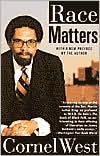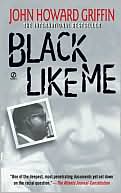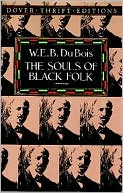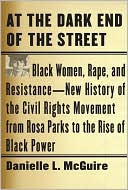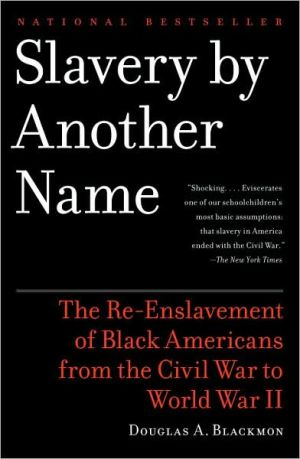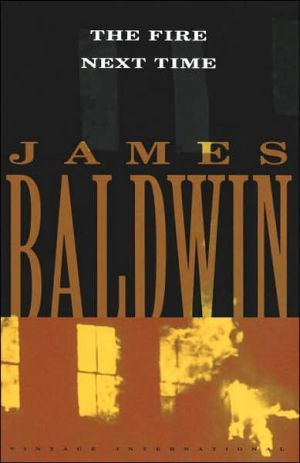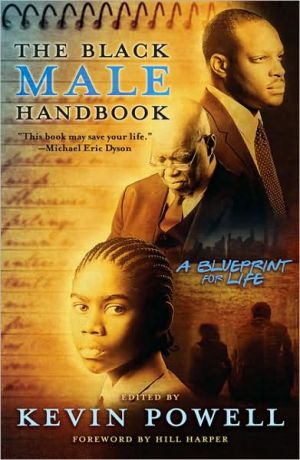Race Matters
First published in 1993 on the one-year anniversary of the L.A. riots, Race Matters was a national best-seller, and it has since become a groundbreaking classic on race in America.\ Race Matters contains West's most powerful essays on the issues relevant to black Americans today: despair, black conservatism, black-Jewish relations, myths about black sexuality, the crisis in leadership in the black community, and the legacy of Malcolm X. And the insights that he brings to these complicated...
Search in google:
The fundamental litmus test for American democracy-its economy, government, criminal justice system, education, mass media, and culture-remains: how broad and intense are the arbitrary powers used and deployed against black people. In this sense, the problem of the twenty-first century remains the problem of the color line. —from the new PrefaceFirst published in 1993 on the one-year anniversary of the L.A. riots, Race Matters was a national best-seller, and it has since become a groundbreaking classic on race in America. Race Matters contains West's most powerful essays on the issues relevant to black Americans today: despair, black conservatism, black-Jewish relations, myths about black sexuality, the crisis in leadership in the black community, and the legacy of Malcolm X. And the insights that he brings to these complicated problems remain fresh, exciting, creative, and compassionate. Now more than ever, Race Matters is a book for all Americans, as it helps us to build a genuine multiracial democracy in the new millennium.Publishers WeeklyIn eight brief but powerful essays, West, director of Afro-American Studies at Princeton, delivers innovative analyses of our nation's racial dilemmas. West is insistently moral, criticizing racial hierarchy and black leaders who cannot transcend race to fight for ``fundamental social change.'' Though he does not spare black liberals, he more harshly criticizes ``new black conservatives'' who in his view ignore the damaging cultural force of black sexual and military images as employed in advertisements and mass media. Exploring black-Jewish relations, he suggests that the moral voices in black America have been drowned out, and in ``Black Sexuality,'' takes on what has long been considered a taboo subject. These essays, none written in the first person, can have an air of detachment: when West calls for a ``politics of conversion'' to fight black nihilism, his best example comes from Toni Morrison's novel Beloved; when he criticizes Malcolm X for having ignored the culturally hybrid character of black life, he proposes the figure of ``jazz freedom fighter'' as one who could ``promote critical exchange and broad reflection.'' But West is more healing visionary than historian. These essays, most of which first appeared in such magazines as Dissent and Z , solidify his position as one of the nation's leading public intellectuals. 40,000 first printing; paperback rights to Vintage; BOMC selection; QPB featured selection; author tour. (Apr.)
\ \ \ \ Chapter One\ \ \ We black folk, our history and our present being, are a mirror of all the manifold experiences of America. What we want, what we represent, what we endure is what America is. If we black folk perish, America will perish. If America has forgotten her past, then let her look into the mirror of our consciousness and she will see the living past living in the present, for our memories go back, through our black folk of today, through the recollections of our black parents, and through the tales of slavery told by our black grandparents, to the time when none of us, black or white, lived in this fertile land. The differences between black folk and white folk are not blood or color, and the ties that bind us are deeper than those that separate us. The common road of hope which we all traveled has brought us into a stronger kinship than any words, laws, or legal claims.\ RICHARD WRIGHT, 12 Million Black Voices (1941)\ \ \ Recent discussions about the plight of African Americans—especially those at the bottom of the social ladder—tend to divide into two camps. On the one hand, there are those who highlight the structural constraints on the life chances of black people. Their viewpoint involves a subtle historical and sociological analysis of slavery, Jim Crowism, job and residential discrimination, skewed unemployment rates, inadequate health care, and poor education. On the other hand, there are those who stress the behavioral impediments on black upward mobility. They focus on the waning of the Protestant ethic—hard work, deferred gratification, frugality, and responsibility—in much of black America.\ Those in the first camp—the liberal structuralists—call for full employment, health, education, and child-care programs, and broad affirmative action practices. In short, a new, more sober version of the best of the New Deal and the Great Society: more government money, better bureaucrats, and an active citizenry. Those in the second camp—the conservative behaviorists—promote self-help programs, black business expansion, and non-preferential job practices. They support vigorous "free market" strategies that depend on fundamental changes in how black people act and live. To put it bluntly, their projects rest largely upon a cultural revival of the Protestant ethic in black America.\ Unfortunately, these two camps have nearly suffocated the crucial debate that should be taking place about the prospects for black America. This debate must go far beyond the liberal and conservative positions in three fundamental ways. First, we must acknowledge that structures and behavior are inseparable, that institutions and values go hand in hand. How people act and live are shaped—though in no way dictated or determined—by the larger circumstances in which they find themselves. These circumstances can be changed, their limits attenuated, by positive actions to elevate living conditions.\ Second, we should reject the idea that structures are primarily economic and political creatures—an idea that sees culture as an ephemeral set of behavioral attitudes and values. Culture is as much a structure as the economy or politics; it is rooted in institutions such as families, schools, churches, synagogues, mosques and communication industries (television, radio, video, music). Similarly, the economy and politics are not only influenced by values but also promote particular cultural ideals of the good life and good society.\ Third, and most important, we must delve into the depths where neither liberals nor conservatives dare to tread, namely, into the murky waters of despair and dread that now flood the streets of black America. To talk about the depressing statistics of unemployment, infant mortality, incarceration, teenage pregnancy, and violent crime is one thing. But to face up to the monumental eclipse of hope, the unprecedented collapse of meaning, the incredible disregard for human (especially black) life and property in much of black America is something else.\ The liberal/conservative discussion conceals the most basic issue now facing black America: the nihilistic threat to its very existence. This threat is not simply a matter of relative economic deprivation and political powerlessness—though economic well-being and political clout are requisites for meaningful black progress. It is primarily a question of speaking to the profound sense of psychological depression, personal worthlessness, and social despair so widespread in black America.\ The liberal structuralists fail to grapple with this threat for two reasons. First, their focus on structural constraints relates almost exclusively to the economy and politics. They show no understanding of the structural character of culture. Why? Because they tend to view people in egoistic and rationalist terms according to which they are motivated primarily by self-interest and self-preservation. Needless to say, this is partly true about most of us. Yet, people, especially degraded and oppressed people, are also hungry for identity, meaning, and self-worth.\ The second reason liberal structuralists overlook the nihilistic threat is a sheer failure of nerve. They hesitate to talk honestly about culture, the realm of meanings and values, because doing so seems to lend itself too readily to conservative conclusions in the narrow way Americans discuss race. If there is a hidden taboo among liberals, it is to resist talking too much about values because such discussions remove the focus from structures and especially because they obscure the positive role of government. But this failure by liberals leaves the existential and psychological realities of black people in the lurch. In this way, liberal structuralists neglect the battered identities rampant in black America.\ As for the conservative behaviorists, they not only misconstrue the nihilistic threat but inadvertently contribute to it. This is a serious charge, and it rests upon several claims. Conservative behaviorists talk about values and attitudes as if political and economic structures hardly exist. They rarely, if ever, examine the innumerable cases in which black people do act on the Protestant ethic and still remain at the bottom of the social ladder. Instead, they highlight the few instances in which blacks ascend to the top, as if such success is available to all blacks, regardless of circumstances. Such a vulgar rendition of Horatio Alger in blackface may serve as a source of inspiration to some—a kind of model for those already on the right track. But it cannot serve as a substitute for serious historical and social analysis of the predicaments of and prospects for all black people, especially the grossly disadvantaged ones.\ Conservative behaviorists also discuss black culture as if acknowledging one's obvious victimization by white supremacist practices (compounded by sexism and class condition) is taboo. They tell black people to see themselves as agents, not victims. And on the surface, this is comforting advice, a nice cliché for downtrodden people. But inspirational slogans cannot substitute for substantive historical and social analysis. While black people have never been simply victims, wallowing in self-pity and begging for white giveaways, they have been—and are—victimized. Therefore to call on black people to be agents makes sense only if we also examine the dynamics of this victimization against which their agency will, in part, be exercised. What is particularly naive and peculiarly vicious about the conservative behavioral outlook is that it tends to deny the lingering effect of black history—a history inseparable from though not reducible to victimization. In this way, crucial and indispensable themes of self-help and personal responsibility are wrenched out of historical context and contemporary circumstances—as if it is all a matter of personal will.\ This ahistorical perspective contributes to the nihilistic threat within black America in that it can be used to justify right-wing cutbacks for poor people struggling for decent housing, child care, health care, and education. As I pointed out above, the liberal perspective is deficient in important ways, but even so liberals are right on target in their critique of conservative government cutbacks for services to the poor. These ghastly cutbacks are one cause of the nihilist threat to black America.\ \ \ The proper starting point for the crucial debate about the prospects for black America is an examination of the nihilism that increasingly pervades black communities. Nihilism is to be understood here not as a philosophic doctrine that there are no rational grounds for legitimate standards or authority; it is, far more, the lived experience of coping with a life of horrifying meaninglessness hopelessness, and (most important) lovelessness. The frightening result is a numbing detachment from others and a self-destructive disposition toward the world. Life without meaning, hope, and love breeds a coldhearted, mean-spirited outlook that destroys both the individual and others.\ Nihilism is not new in black America. The first African encounter with the New World was an encounter with a distinctive form of the Absurd. The initial black struggle against degradation and devaluation in the enslaved circumstances of the New World was, in part, a struggle against nihilism. In fact, the major enemy of black survival in America has been and is neither oppression nor exploitation but rather the nihilistic threat—that is, loss of hope and absence of meaning. For as long as hope remains and meaning is preserved, the possibility of overcoming oppression stays alive. The self-fulfilling prophecy of the nihilistic threat is that without hope there can he no future, that without meaning there can be no struggle.\ The genius of our black foremothers and forefathers was to create powerful buffers to ward off the nihilistic threat, to equip black folk with cultural armor to beat back the demons of hopelessness, meaninglessness, and lovelessness. These buffers consisted of cultural structures of meaning and feeling that created and sustained communities; this armor constituted ways of life and struggle that embodied values of service and sacrifice, love and care, discipline and excellence. In other words, traditions for black surviving and thriving under usually adverse New World conditions were major barriers against the nihilistic threat. These traditions consist primarily of black religious and civic institutions that sustained familial and communal networks of support. If cultures are, in part, what human beings create (out of antecedent fragments of other cultures) in order to convince themselves not to commit suicide, then black foremothers and forefathers are to be applauded. In fact, until the early seventies black Americans had the lowest suicide rate in the United States. But now young black people lead the nation in suicides.\ What has changed? What went wrong? The bitter irony of integration? The cumulative effects of a genocidal conspiracy? The virtual collapse of rising expectations after the optimistic sixties? None of us fully understands why the cultural structures that once sustained black life in America are no longer able to fend off the nihilistic threat. I believe that two significant reasons why the threat is more powerful now than ever before are the saturation of market forces and market moralities in black life and the present crisis in black leadership. The recent market-driven shattering of black civil society—black families, neighborhoods, schools churches, mosques—leaves more and more black people vulnerable to daily lives endured with little sense of self and fragile existential moorings.\ Black people have always been in America's wilderness in search of a promised land. Yet many black folk now reside in a jungle ruled by a cutthroat market morality devoid of any faith in deliverance or hope for freedom. Contrary to the superficial claims of conservative behaviorists, these jungles are not primarily the result of pathological behavior. Rather, this behavior is the tragic response of a people bereft of resources in confronting the workings of U.S. capitalist society. Saying this is not the same as asserting that individual black people are not responsible for their actions—black murderers and rapists should go to jail. But it must be recognized that the nihilistic threat contributes to criminal behavior. It is a threat that feeds on poverty and shattered cultural institutions and grows more powerful as the armors to ward against it are weakened.\ \ \ But why is this shattering of black civil society occurring? What has led to the weakening of black cultural institutions in asphalt jungles? Corporate market institutions have contributed greatly to their collapse. By corporate market institutions. I mean that complex set of interlocking enterprises that have a disproportionate amount of capital, power, and exercise a disproportionate influence on how our society is run and how our culture is shaped. Needless to say, the primary motivation of these institutions is to make profits, and their basic strategy is to convince the public to consume. These institutions have helped create a seductive way of life, a culture of consumption that capitalizes on every opportunity to make money. Market calculations and cost-benefit analyses hold sway in almost every sphere of U.S. society.\ The common denominator of these calculations and analyses is usually the provision, expansion, and intensification of pleasure. Pleasure is a multivalent term; it means different things to many people. In the American way of life pleasure involves comfort, convenience, and sexual stimulation. Pleasure, so defined, has little to do with the past and views the future as no more than a repetition of a hedonistically driven present. This market morality stigmatizes others as objects for personal pleasure or bodily stimulation. Conservative behaviorists have alleged that traditional morality has been undermined by radical feminists and the cultural radicals of the sixties. But it is clear that corporate market institutions have greatly contributed to undermining traditional morality in order to stay in business and make a profit. The reduction of individuals to objects of pleasure is especially evident in the culture industries—television, radio, video, music—in which gestures of sexual foreplay and orgiastic pleasure flood the marketplace.\ Like all Americans, African Americans are influenced greatly by the images of comfort, convenience, machismo, femininity, violence, and sexual stimulation that bombard consumers. These seductive images contribute to the predominance of the market-inspired way of life over all others and thereby edge out nonmarket values—love, care, service to others—handed down by preceding generations. The predominance of this way of life among those living in poverty-ridden conditions, with a limited capacity to ward off self-contempt and self-hatred, results in the possible triumph of the nihilistic threat in black America.\ \ \ A major contemporary strategy for holding the nihilistic threat at bay is a direct attack on the sense of worthlessness and self-loathing in black America. This angst resembles a kind of collective clinical depression in significant pockets of black America. The eclipse of hope and collapse of meaning in much of black America is linked to the structural dynamics of corporate market institutions that affect all Americans. Under these circumstances black existential angst derives from the lived experience of ontological wounds and emotional scars inflicted by white supremacist beliefs and images permeating U. S. society and culture. These beliefs and images attack black intelligence, black ability, black beauty, and black character daily in subtle and not-so-subtle ways Toni Morrison's novel, The Bluest Eye, for example, reveals the devastating effect of pervasive European ideals of beauty on the self-image of young black women. Morrison's exposure of the harmful extent to which these white ideals affect the black self-image is a first step toward rejecting these ideals and overcoming the nihilistic self-loathing they engender in blacks.\ The accumulated effect of the black wounds and scars suffered in a white-dominated society is a deep-seated anger, a boiling sense of rage, and a passionate pessimism regarding America's will to justice. Under conditions of slavery and Jim Crow segregation this anger, rage, and pessimism remained relatively muted because of a well-justified fear of brutal white retaliation. The major breakthroughs of the sixties—more psychically than politically—swept this fear away. Sadly, the combination of the market way of life, poverty-ridden conditions, black existential angst, and the lessening of fear of white authorities has directed most of the anger, rage and despair toward fellow black citizens, especially toward black women who are the most vulnerable in our society and in black communities. Only recently has this nihilistic threat—and its ugly inhumane outlook and actions—surfaced in the larger American society. And its appearance surely reveals one of the many instances of cultural decay in a declining empire.\ \ \ What is to be done about this nihilistic threat? Is there really any hope, given our shattered civil society, market-driven corporate enterprises, and white supremacism? If one begins with the threat of concrete nihilism, then one must talk about some kind of politics of conversion. New models of collective black leadership must promote a version of this politics. Like alcoholism and drug addiction, nihilism is a disease of the soul. It can never be completely cured, and there is always the possibility of relapse. But there is always a chance for conversion—a chance for people to believe that there is hope for the future and a meaning to struggle. This chance rests neither on an agreement about what justice consists of nor on an analysis of how racism, sexism, or class subordination operate. Such arguments and analyses are indispensable. But a politics of conversion requires more. Nihilism is not overcome by arguments or analyses; it is tamed by love and care. Any disease of the soul must be conquered by a turning of one's soul. This turning is done through one's own affirmation of one's worth—an affirmation fueled by the concern of others. A love ethic must be at the center of a politics of conversion.\ A love ethic has nothing to do with sentimental feelings or tribal connections. Rather it is a last attempt at generating a sense of agency among a downtrodden people. The best exemplar of this love ethic is depicted on a number of levels in Toni Morrison's great novel Beloved. Self-love and love of others are both modes toward increasing self-valuation and encouraging political resistance in one's community. These modes of valuation and resistance are rooted in a subversive memory—the best of one's past without romantic nostalgia—and guided by a universal love ethic. For my purposes here, Beloved can be construed as bringing together the loving yet critical affirmation of black humanity found in the best of black nationalist movements, the perennial hope against hope for trans-racial coalition in progressive movements, and the painful struggle for self-affirming sanity in a history in which the nihilistic threat seems insurmountable.\ The politics of conversion proceeds principally on the local level—in those institutions in civil society still vital enough to promote self-worth and self-affirmation. It surfaces on the state and national levels only when grassroots democratic organizations put forward a collective leadership that has earned the love and respect of and, most important, has proved itself accountable to these organizations. This collective leadership must exemplify moral integrity, character, and democratic statesmanship within itself and within its organizations.\ Like liberal structuralists, the advocates of a politics of conversion never lose sight of the structural conditions that shape the sufferings and lives of people. Yet, unlike liberal structuralism, the politics of conversion meets the nihilistic threat head-on. Like conservative behaviorism, the politics of conversion openly confronts the self destructive and inhumane actions of black people Unlike conservative behaviorists, the politics of conversion situates these actions within inhumane circumstances (but does not thereby exonerate them). The politics of conversion shuns the limelight—a limelight that solicits status seekers and ingratiates egomaniacs. Instead, it stays on the ground among the toiling everyday people, ushering forth humble freedom fighters—both followers and leaders—who have the audacity to take the nihilistic threat by the neck and turn back its deadly assaults.\ \ \ Excerpted from Race Matters by Cornel West. Copyright © 2001 by Cornel West. Excerpted by permission. All rights reserved. No part of this excerpt may be reproduced or reprinted without permission in writing from the publisher. \ \ \ \
Preface 2001: Democracy Matters in Race MattersPreface 1993Introduction: Race Matters11Nihilism in Black America92The Pitfalls of Racial Reasoning213The Crisis of Black Leadership334Demystifying the New Black Conservatism475Beyond Affirmative Action: Equality and Identity616On Black-Jewish Relations697Black Sexuality: The Taboo Subject818Malcolm X and Black Rage93Epilogue107
\ Publishers Weekly - Publisher's Weekly\ In eight brief but powerful essays, West, director of Afro-American Studies at Princeton, delivers innovative analyses of our nation's racial dilemmas. West is insistently moral, criticizing racial hierarchy and black leaders who cannot transcend race to fight for ``fundamental social change.'' Though he does not spare black liberals, he more harshly criticizes ``new black conservatives'' who in his view ignore the damaging cultural force of black sexual and military images as employed in advertisements and mass media. Exploring black-Jewish relations, he suggests that the moral voices in black America have been drowned out, and in ``Black Sexuality,'' takes on what has long been considered a taboo subject. These essays, none written in the first person, can have an air of detachment: when West calls for a ``politics of conversion'' to fight black nihilism, his best example comes from Toni Morrison's novel Beloved; when he criticizes Malcolm X for having ignored the culturally hybrid character of black life, he proposes the figure of ``jazz freedom fighter'' as one who could ``promote critical exchange and broad reflection.'' But West is more healing visionary than historian. These essays, most of which first appeared in such magazines as Dissent and Z , solidify his position as one of the nation's leading public intellectuals. 40,000 first printing; paperback rights to Vintage; BOMC selection; QPB featured selection; author tour. Apr.\ \ \ \ \ Library JournalIn this collection of essays, many of which have previously appeared in journals, West, the director of Afro-American studies at Princeton and the author of several books, including Prophetic Fragments LJ 3/1/88 and Breaking Bread with bell hooks LJ 12/91, addresses a number of issues of concern to black Americans: the Los Angeles riots after the Rodney King verdict; Malcolm X; Clarence Thomas and Anita Hill; and black street life. These topics are all timely yet timeless in that they represent the continuing struggle to include African Americans in mainstream American political, economic, and social life without destroying their unique culture. West's essays have the feel of a fine sermon, with thought-provoking ideas and new ways of looking at the same old problems. They can be quickly read yet take a long time to digest because of West's unique slant on life. Already well known in scholarly circles, West is increasingly becoming more visible to the general public, and this book should make his essays more accessible to a greater number of people. Recommended for all types of libraries.-- Anita L. Cole, Miami-Dade P.L. System, Fla.\ \ \ School Library JournalYA-Thought-provoking essays that address a number of controversial issues of concern to African Americans. West analyzes such subjects as nihilism in black America, the crisis of black leadership, affirmative action, black-Jewish relations, sexuality, and the legacy of Malcolm X. His writing style is scholarly and sparse-he does not waste words, and his prose is easy to read. Yet his viewpoints are radical and passionately felt. He is not afraid to speak frankly and, while he presents many criticisms, he also offers many solutions. Not everyone will agree with his point of view, but if one of his objectives is to make readers at least think about the problems he has dissected, then he has succeeded admirably.-Pat Royal, Crossland High School, Camp Springs, MD\ \ \ \ \ BooknewsReprint of a 1993 work, with a new (4p.) preface. Annotation c. Book News, Inc., Portland, OR (booknews.com)\ \ \ \ \ Sacred FireCornel West is one of the most recognized of American public intellectuals. His message of social liberation, rooted deeply in the black Baptist tradition, strikes a chord among an audience of lay readers and academics because it is equally intellectual and accessible. And because of its inherent humanism, it crosses racial and cultural lines as well.\ In Race Matters, West asks for a renewed engagement on the question of race and presents a bracing call to action to establish a new framework from which to discuss the issue. West believes race represents a dire paradox for the nation: either America recognizes the common humanity of all of its citizens, acknowledges its spiritual impoverishment, and overturns a political environment dominated by image rather than substance, or it risks the unmaking of the democratic order.\ Ours is a crisis, contends West, that evolves in large measure from the predominantly market-driven American way of life. The attendant emphasis on individuality and competition renders traditional black communal life ineffective and leads to the denigration of black people. This situation, West explains, creates not just a social and political crisis in the black community, but a deep existential crisis as well:\ Under these circumstances black existential angst derives from the lived experience of ontological wounds and emotional scars inflicted by white supremacist beliefs and images permeating U.S. society and culture. These beliefs and images attack black intelligence, black ability, black beauty, and black character daily in subtle and not-so-subtle ways.... The accumulated effect of the black wounds and scars suffered in a white-dominated society is a deep-seated anger, a boiling sense of rage, and a passionate pessimism regarding America's will to justice.\ Thus, centuries into the African American experience, more than one hundred years after the abolition of slavery, and decades after the major battles of the civil rights movement, race, contends West, still matters.\ \
